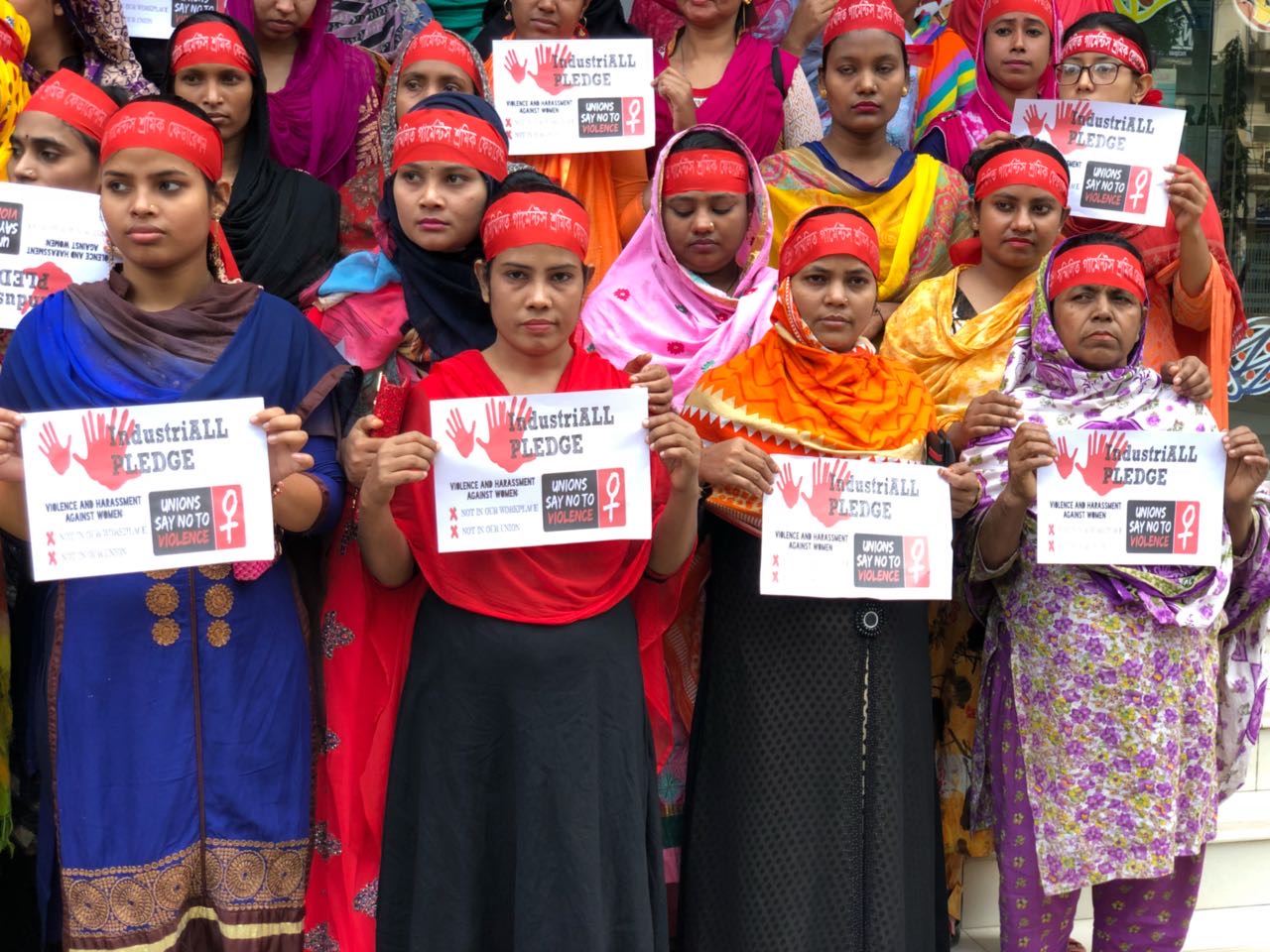Enabling decent working conditions is a cross-cutting focus of all the projects and activities of Awaj Foundation. From raising rights awareness, leadership development and fostering harmonious industrial relations to research and advocacy, all our efforts work towards the broader goal of decent working conditions for workers in the garment and leather sectors in Bangladesh. Some of our projects also target specific areas of decent work, such as occupational safety and health and tackling gender-based violence in the workplace.
Occupational safety and health
Since the Rana Plaza tragedy, occupational safety and health has been the main focus of most donors, brands and labour rights organizations in Bangladesh. Awaj Foundation works on improving occupational safety and health (OSH) by training workers on building and fire safety. Thousands of workers have been trained on OSH by Awaj since its inception in 2003. We also help set up worker-led safety committees at factories where workers can monitor safety issues at their workplace and raise concerns collectively with management.
Tackling gender-based violence
Combating gender-based violence (GBV) is one of our main focus areas. GBV not only creates unsafe working places for women, it discourages women from seeking promotions and taking up leadership positions in unions and factory committees.
Awaj foundation takes a multi-faceted approach to combating GBV. We raise awareness among female and male workers on GBV – this is important because gender-based discrimination and violence is normalized in most workplaces and there is also enormous social stigma in speaking out about GBV. We work to raise awareness among workers that GBV is not acceptable and that they should demand accountability when it happens. At the same time, we train management members to sensitize them no GBV and how to create a safe workplace for women. To date, we have trained over 900 factory management members on GBV and anti-harassment.
We also work to set up mechanisms where women suffering from GBV can report abuse and get help. Awaj has helped set up 52 anti-harassment committees (AHCs) in factories in Dhaka and Chittagong divisions. We have also helped set up hotlines where workers can anonymously report GBV and harassment.
Awaj Foundation is also involved in national-level advocacy in Bangladesh to strengthen legal measures against GBV. In September, 2018, we, along with a coalition of civil society and academics, submitted a draft law against GBV in the workplace to the Ministry of Law, Justice & Parliamentary Affairs and the Ministry of Labour & Employment.








